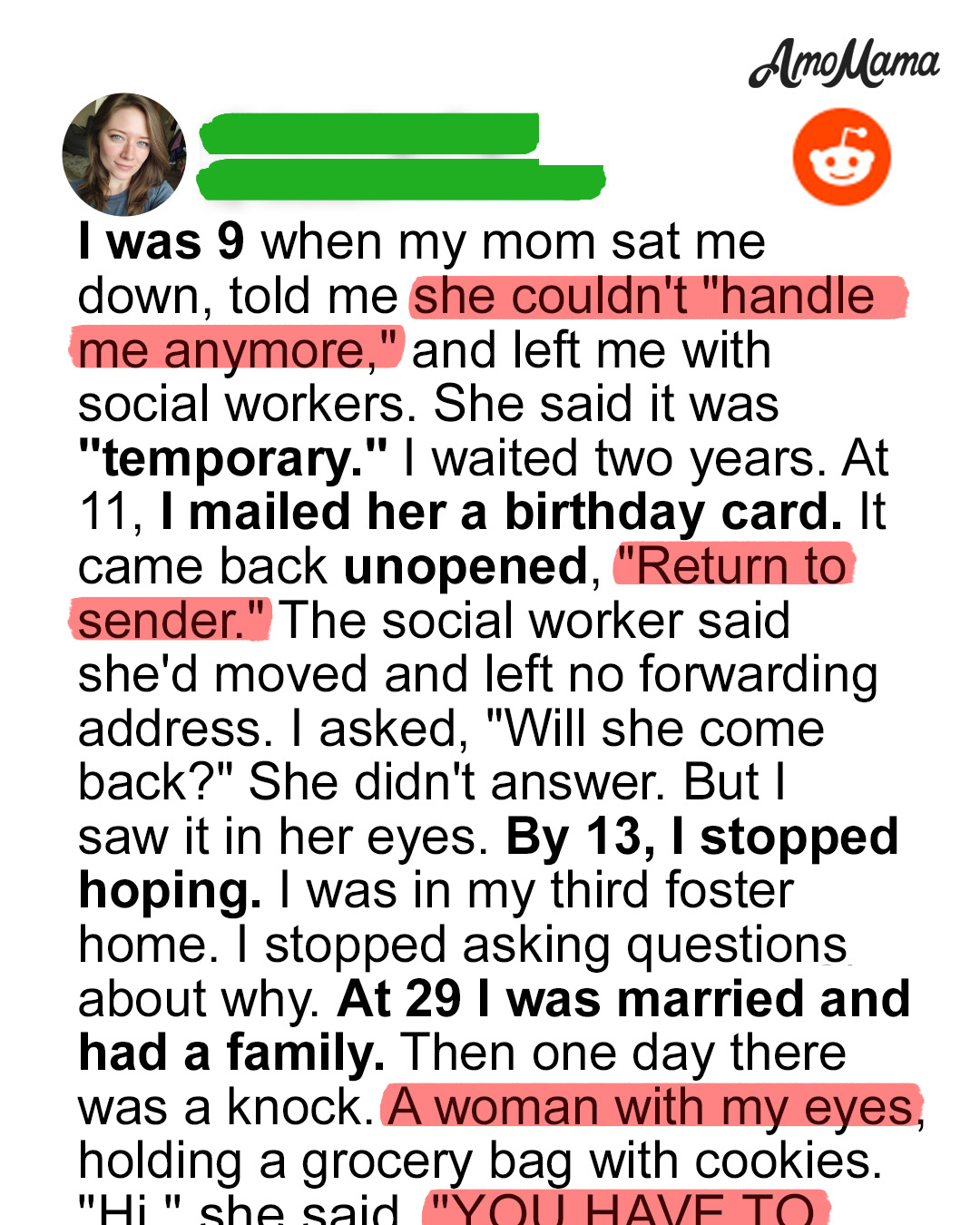Twenty years after my mother walked out of my life, she showed up at my door with nothing but a grocery bag and demands. What she said next changed everything I thought I knew about forgiveness. My childhood feels like watching someone else’s life through a dirty window. Most of it is blurry, but some parts are crystal clear in all the wrong ways.
I don’t even remember my father’s face. He left when I was still in diapers, before I could form any real memories of him.

The only proof he ever existed is his name on my birth certificate. That’s it. That’s all I know about the man who gave me half my DNA and then vanished like smoke.
“Your daddy went away,” Mom used to tell me when I was little enough to ask. “Sometimes people just go away, Stacey.”
I should have paid attention to that warning.

My mother, Melissa, is a different story.
I remember her, but not in the way kids are supposed to remember their moms. There are no warm bedtime stories or birthday parties in my memories. Instead, I remember her anger. It filled our cramped little house like smoke from a fire that never went out.
We lived in this tiny two-bedroom place on the wrong side of town. The wallpaper was peeling, the carpet was stained, and the windows were so dirty they barely let in any light.

Mom worked at the grocery store during the day and came home exhausted every night.
“I can’t do this anymore,” she’d mutter while heating up another frozen dinner. “I just can’t do this anymore.”
I was too young to understand what “this” meant. I thought she was talking about work, or maybe the broken dishwasher that had been sitting in our kitchen for months.

I was nine years old the day my world turned upside down.
It was a Friday in March, and I remember because I’d been excited about a spelling test I’d aced that day. I came home ready to tell Mom about it, but she was sitting at our kitchen table with papers spread out in front of her.
“Stacey, come sit down,” she said without looking up. “We need to talk.”
I climbed onto the wobbly chair across from her. “Mom, guess what? I got a hundred on my spelling test and—”

“Stacey.” She finally looked at me, and her eyes were red like she’d been crying. “I can’t handle you anymore.”
“What does that mean, Mommy?”
“I can’t take care of you. I tried, but I just can’t do it.” She pushed one of the papers toward me. I couldn’t read most of it, but I saw the word “custody” at the top. “Some nice people from social services are coming to get you tomorrow.”
